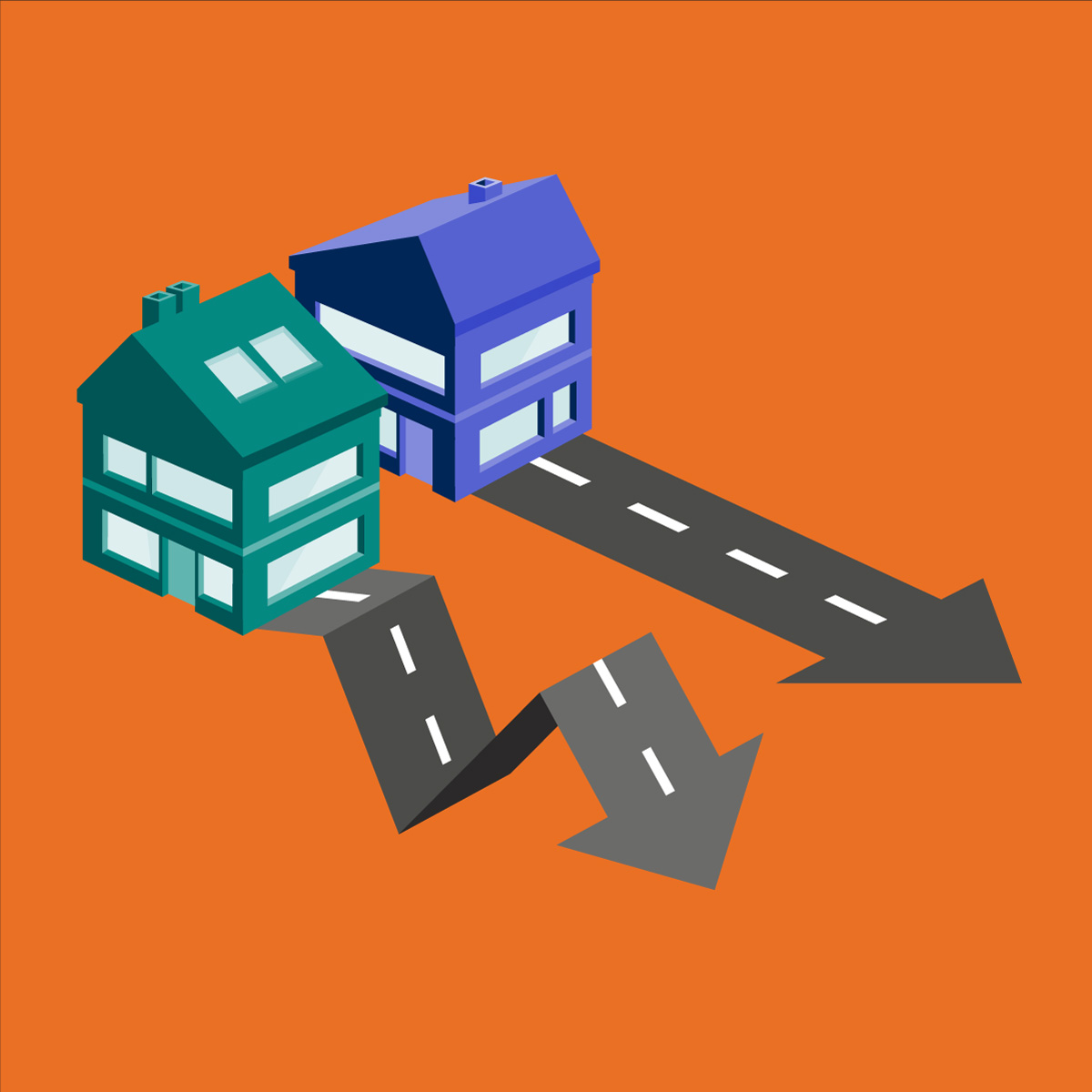Managing your debt in difficult time
A global event that almost no one predicted happened over the past several years. And no, I'm not referring to a pandemic. I'm talking about inflation.
Coupled with interest rates at levels not seen in more than 20 years and alarmingly high levels of household debt, it's no wonder Canadians worry about their finances an average of 15 hours a week (up from 10 hours in 2022, according to a Scotiabank poll). And paying off debt is the No. 1 financial worry for 39% of those polled.
But with every challenge comes an opportunity to become financially stronger and more resilient. We'll explore some ways for you to do that below.
Keep track of expenses and income
"Based on the number of calls we've been receiving — the most in years — it's clear people are overwhelmed and incredibly stressed," says Bruce Sellery, CEO of Credit Canada, the country's oldest non-profit credit counselling agency.
The good news is there are steps you can take right now to put yourself on firmer ground. First, assess where you stand financially. Then, tweak your spending and focus on increasing income to help you better manage the rising costs of living (and your stress levels). Here's how to get started:
1. Go through all your expenses
Start by combing through a few months of your credit card and bank statements. This will give you an accurate picture of your monthly spending. Chances are your bank or credit card app already has built-in charts and other tools to help you do this.
2. List all “essential" expenses
Once you've located where your money is going (no easy feat with our tap-and-spend culture), you can highlight which expenses are non-negotiable. These include big items like rent and your mortgage, other loans, credit cards and line of credit payments. Plus, miscellaneous bills like groceries, utilities, taxes, and additional costs that you simply can't cut.
3. List all your income
If you have a side gig, a part-time job or other sources of income in addition to your full-time work, get those amounts on paper so you can see them all in one place.
4. Determine how much you have left
Add up your total income and subtract all of those essential expenses. This total is what you have left for your wants, additional savings, and other items. If you bank with Tangerine, you can use the "Left to Spend" feature to track this amount throughout the month.
Create a debt management plan
So, now that you know how much money is coming in and going out, make a list of all your financial obligations, including debt payments. Will your income fall short of covering these needs? If so, consider a debt management plan. Here are some things to consider:
- What are your expenses for the next three months? Write them down in a list.
- Next, list the debts you'd like to chip away at, focusing on your debt with the highest interest rate first. Make a goal for adding more to your minimum monthly obligations, even if it's just a dollar or two more a day.
- Then take a look at your expenses to see which ones you can pause temporarily. Can you pause some of your subscriptions, for instance?
- What other ways can you cut back? Can you eat at home more often, take advantage of free entertainment, or reduce cable and other bills?
Once you've completed these steps, you'll clearly see your expenses over the next few months and where you can find extra money to put toward debt repayment. Repeat this process every three months until you're comfortable making all of your debt repayments (plus, ideally, a little more than the minimum payments) each month.
Create a budget — and stick to it!
The next step is to create a budget that includes your regular debt repayments. Creating a budget can feel complicated and restrictive, but it doesn't have to be.
Here's what your budget should do:
- Help you categorize your spending
- Determine a maximum amount for each category (e.g. eating out, entertainment, shopping, etc.)
- Make the invisible amounts visible. You could put cash into labelled jars or envelopes or use a paper journal or digital document/spreadsheet to track how much you have left in each spending category.
- Ensure that you spend less than you make each month.
Earn extra cash with a side gig
Earning extra cash each month during your free time has become increasingly common. What about starting a dog-walking business? Or driving for a food delivery service? Have you thought about selling items online that you no longer use? Or even soliciting your neighbours to sell their unused items and split the profit? Even a modest amount each month can help you feel more confident about your cash flow. And one benefit is that you can use your side gig income to fund an emergency account.
Debt relief options
But what happens if you look at your budget and think you're in over your head? "If you are feeling stressed about debt, the very first thing you should do is call a non-profit credit counsellor," suggests Doug Hoyes, Insolvency Trustee with Hoyes Michalos. He says the big stressor for many people is the fear of the unknown. "Will prices continue to increase? Will you lose your job? If you have no savings, it's stressful to think about the future."
These counsellors will assess your debt situation and let you know about your options — all for free.
Don't give up! "It might feel hopeless, but it is not," encourages Hoyes. "You might need to do some budgeting to rein in expenses or look at a low-rate credit card to reduce interest expenses." Payment deferrals or refinancing might also be options.
Hoyes goes on to say you can consider a debt consolidation program. "This is when a credit counsellor negotiates with your creditors to lower your interest rates in exchange for a fixed payment every month over about four years." However, this could negatively impact your credit score, so make sure you're doing everything you can to get your credit score back up.
And finally, if you've tried everything else, you might want to consider getting a referral to a licenced insolvency trustee who can work with you on a consumer proposal or bankruptcy.
Should you seek a deferral?
You can consider a deferral if your cash flow crunch is temporary (maybe you were ill or unemployed or on mat leave). Sellery states that "if it's a temporary situation, then deferrals could be a good option. If, say, you owe $2,000 in rent and can't pay it on the first of the month, make a deal with your landlord. Then pay what you can every paycheque until you're caught up." If the payment is for a car loan or mortgage, he adds, the lender may also let you defer the payment.
Final thoughts
If you're struggling to keep up with inflation, please know you're not alone. Whether you get out of debt on your own or enlist help, there are always ways to create a financial cushion for yourself.
There's no “one size fits all" debt repayment plan or budget. But you can significantly reduce your financial stress by paying attention to your expenses and getting creative with bringing in more income.
The sooner you start, the more options you have. But, if you can't start today, add small tasks (like calling up your bank and combing through your credit card statements) to your digital calendar. Set a goal to tackle one task each week, and you'll be pleasantly surprised by how organized your financial life will become.


